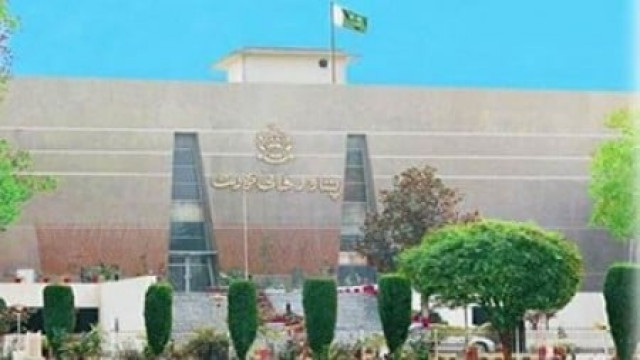One petitioner to be compensated, will more follow?
The fate of others contesting cases of similar nature against same respondents uncertain.

Hameeda claimed security agencies kidnapped her son and went on to contest the case for about a year at the Peshawar High Court (PHC). PHOTO: FILE
It is a given the legal heirs of a deceased person are almost always financially compensated once the murderer confesses. Either the court orders compensation or a jirga instructs the affected family should be paid and the issue is laid to rest.
On July 3, the federal and provincial governments released the collective payment of Rs1 million to Hameeda Bibi, mother of Farmanullah. He was allegedly picked up and killed by security agencies.
Farmanullah went missing from Nauthia, Peshawar in 2012 and his remains were found stuffed in a gunny bag within the jurisdiction of Prang police station, Charsadda in January 2013.

Hameeda, his mother, had claimed security agencies kidnapped him and had been contesting the case for about a year at the Peshawar High Court (PHC). Police also suspected Farmanullah was killed in the custody of secret agencies.
With the federal and provincial governments complying with the court’s orders and paying Rs0.5 million each to Hameeda, the question arises – what would be the fate of the 20 other petitioners who are contesting cases of a similar nature against the same respondents?
“It is the family’s right to be financially compensated since their loved ones have been held in illegal custody,” said Advocate Arif Jan who has fought over 100 cases pertaining to enforced disappearances, along with six cases of those killed in custody.
Jan was of the opinion the federal government should have considered the consequences before deciding to keep over 4,000 people in illegal confinement. He maintained paying compensation would not only help heal the wounds of the bereaved families but it would also help reduce the public’s growing distrust of security agencies.
“In one of my cases, eight male members of a family were picked up and only women and children were left behind,” Jan revealed, adding the women sold every single item in their house to fight the case and are currently living in a miserable condition.
The issue was not the court’s concern; the advocate pointed out the government should be prepared to face the music if it continues to illegally detain people. Jan emphasised aid organisations should come forward and extend a helping hand to the affectees.
In August 2012, the Human Rights Cell of the PHC appraised Chief Justice (CJ) Dost Muhammad Khan about the frequent recovery of bodies of missing persons. The CJ took immediate notice and summoned high-ranking police officials to look into the matter.
Initially, at least 16 bodies were recovered in and around the provincial capital. Later the number rose to 30, however, only 20 legal heirs of those found dead approached the PHC.
None of the suspected culprits could be arrested.
Published in The Express Tribune, July 8th, 2013.













COMMENTS
Comments are moderated and generally will be posted if they are on-topic and not abusive.
For more information, please see our Comments FAQ